November 23, 2025 | 08:18 GMT +7
November 23, 2025 | 08:18 GMT +7
Hotline: 0913.378.918
November 23, 2025 | 08:18 GMT +7
Hotline: 0913.378.918
The International Cooperation Department (under the Ministry of Agriculture and Rural Development of Vietnam) and the Department of Environment, Export, and International Relations (under Japan'sMinistry of Agriculture, Forestry, and Fisheries) engaged in the second Senior Officials Meeting (SOM) on the "Mid- and Long-Term Vision for Agricultural Cooperation Between Vietnam and Japan for the Period 2025-2030" on March 14.
The draft Mid- and Long-Term Vision was reviewed and discussed by both parties during the meeting, and a consensus was reached on the most important topics. Additionally, they suggested agenda items for the upcoming 6th Vietnam-Japan Agricultural Cooperation Dialogue and the signature of the Vision Memorandum.
The identification of solutions and initiatives to establish a sustainable agricultural and food system in the ASEAN region was one of the primary topics of discussion, which was founded on the MIDORI ASEAN-Japan Cooperation Plan.
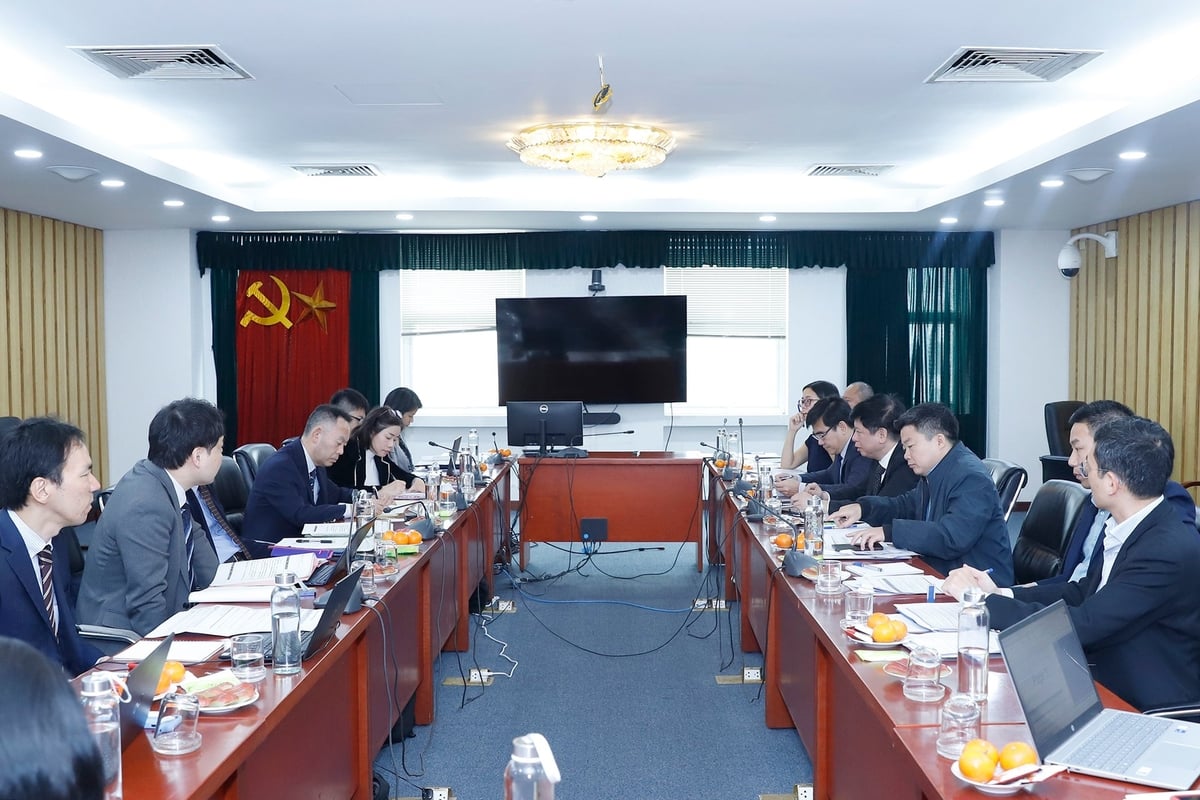
The second meeting on “Medium and long-term vision in Vietnam - Japan agricultural cooperation for the period 2025 - 2030” between the Department of International Cooperation of the Ministry of Agriculture and Environment and the Department of Environment, Export and International Relations, Ministry of Agriculture, Forestry and Fisheries of Japan. Photo: Khuong Trung.
The 45th ASEAN Ministers of Agriculture and Forestry (AMAF 45) meeting in October 2023 adopted the MIDORI ASEAN-Japan Cooperation Plan, which seeks to improve cooperation in the development of a sustainable and resilient agricultural and food system that guarantees food security in the region.
The plan emphasizes the promotion of ecological and organic agricultural practices and the development of smart, low-emission agriculture as part of a broader strategy. This is consistent with Vietnam's Strategy for Sustainable Agriculture and Rural Development for the Period 2021-2030, which is designed to mitigate the adverse effects of climate change and enhance agricultural productivity.
In addition, the establishment of a sustainable food value chain will contribute to the enhancement of the mid- and long-term vision for Vietnam-Japan agricultural cooperation during the 2025-2030 period. The continuous development of agricultural systems in both countries is guaranteed by the promotion of new agricultural technologies and the advancement of workforce training.
Strengthening the support system for agricultural exports is one of the significant objectives of future cooperation. In 2022, Vietnam and Japan reached an agreement to improve the efficacy of agricultural export mechanisms during a meeting in Ho Chi Minh City. This encompasses the facilitation of Vietnam's exports to other countries, as well as the establishment of favorable conditions for Japanese agricultural products to access the Vietnamese market.
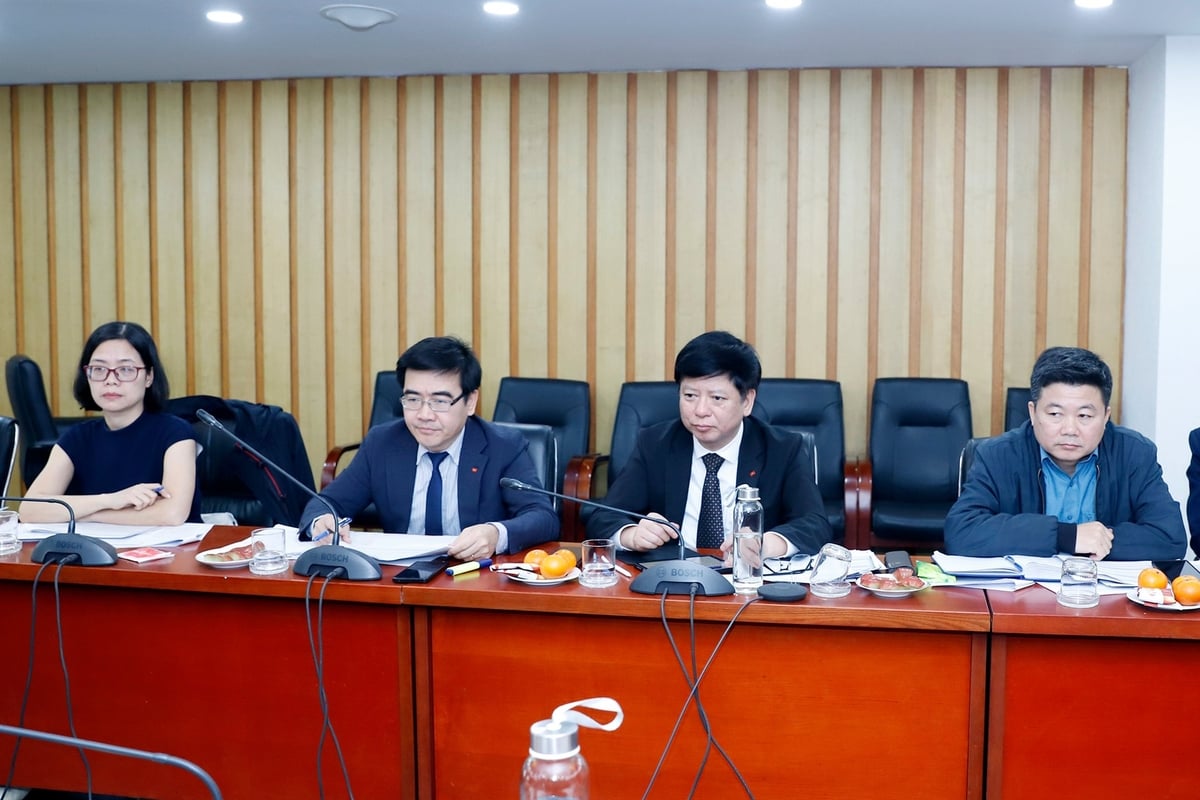
Leaders of the Department of International Cooperation of the Ministry of Agriculture and Environment attended the meeting. Photo: Khuong Trung.
Simultaneously, both parties acknowledged that the development of agriculture-related infrastructure, including irrigation systems, processing facilities, distribution networks, and market access, is insufficient and requires additional attention. To ensure sustainable and balanced development, Vietnam must continue to enhance these infrastructures in order to support the food value chain, given its swiftly expanding economy.
Both parties underscored the importance of increasing private investment from Japan into Vietnam's agricultural sector during the meeting. Both nations reaffirmed their dedication to close cooperation, particularly with local ministries and agencies, to foster a favorable investment environment for Japanese enterprises, with the aim of incorporating advanced technologies and local resources into agricultural projects.
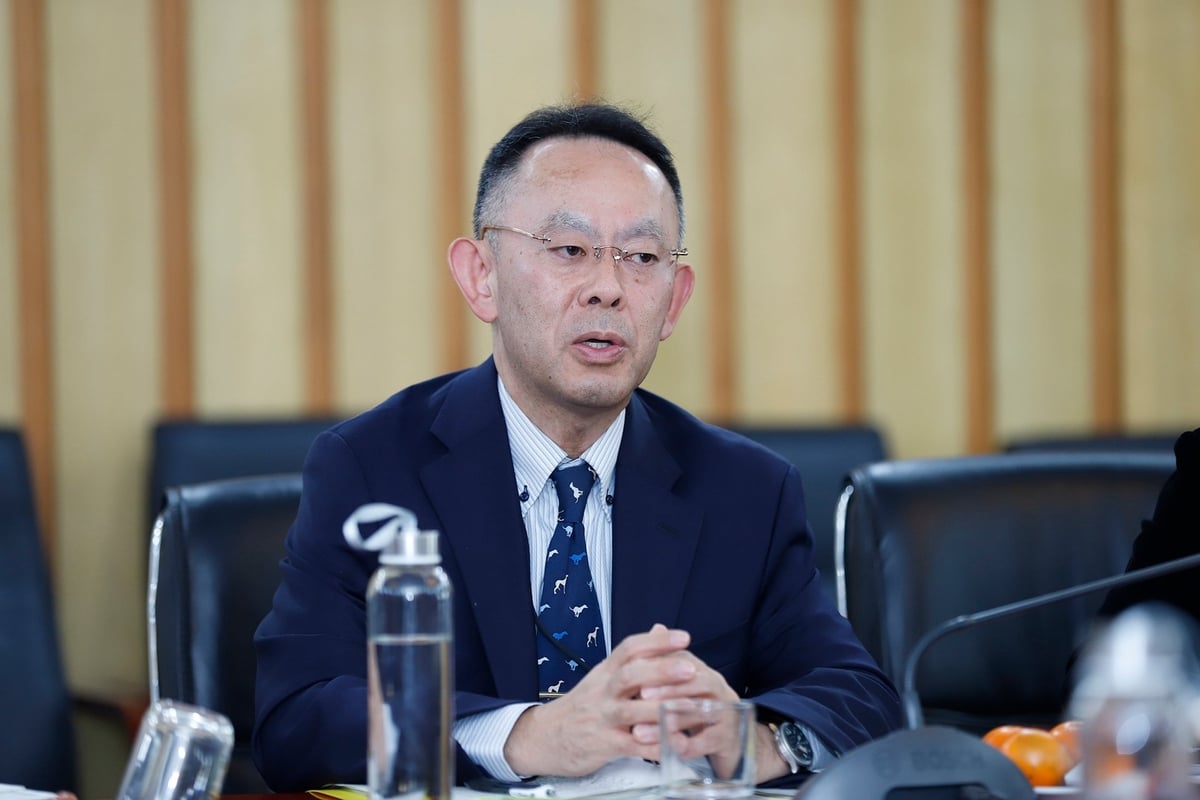
Mr. HAGIWARA Hideki, Deputy Director of the Department of Environment, Export and International Relations, Ministry of Agriculture, Forestry and Fisheries of Japan, speaking at the meeting. Photo: Khuong Trung.
Additionally, workforce development in the agricultural sector is one of the most noteworthy recent initiatives. The two countries will continue to improve their collaboration in training and workforce exchange programs, with the objective of establishing a competent agricultural workforce, particularly in the areas of organic farming, sustainable production, and agricultural resource management.
In the future, one of the primary goals is to establish a sustainable food value chain that is not limited to pilot regions but also extends across the country. It will be imperative to enhance the integration of the production, processing, distribution, and consumption processes in order to generate additional value for agricultural products. Both administrations will prioritize the enhancement of product quality, safety standards, and the increase in farmers' incomes.
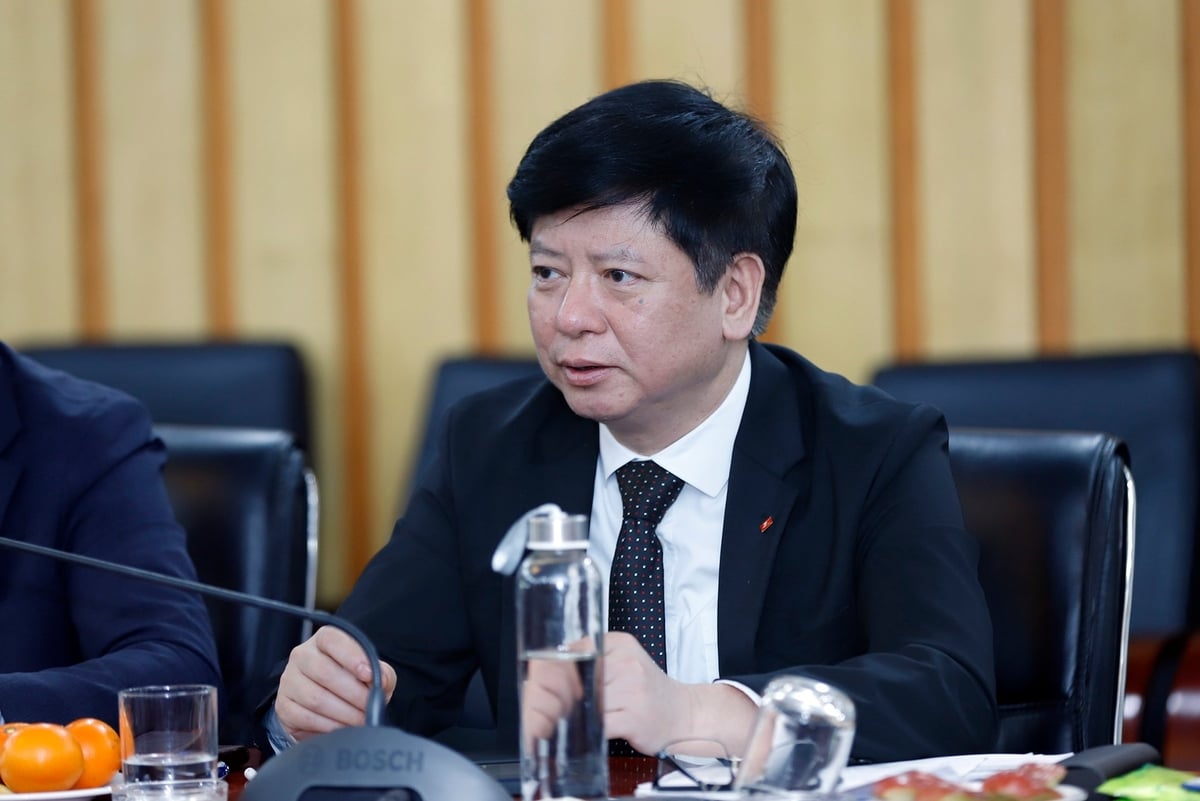
Mr. Pham Ngoc Mau - Deputy Director of the Department of International Cooperation, Ministry of Agriculture and Environment. Photo: Khuong Trung.
The 2025-2030 Action Plan identifies three critical concerns that must be resolved: the enhancement of agricultural product certification systems, the promotion of private investment, and the continuation of agricultural infrastructure development. Furthermore, endeavors will be undertaken to further modern agricultural production technologies, safeguard genetic resources and plant varieties, and provide assistance in the development of policies for agricultural workforce training in both countries.
It is anticipated that these initiatives will not only improve food security in Vietnam and Japan, but also strengthen agricultural cooperation between the two countries, thereby promoting sustainable development and meeting the escalating demands of global markets..
With the common objective of creating a resilient and sustainable agricultural system, both parties expressed a resolute commitment to maintaining effective cooperation in the implementation of these initiatives. This system will enhance the quality of life for farmers and rural communities while also being capable of adapting to climate change.
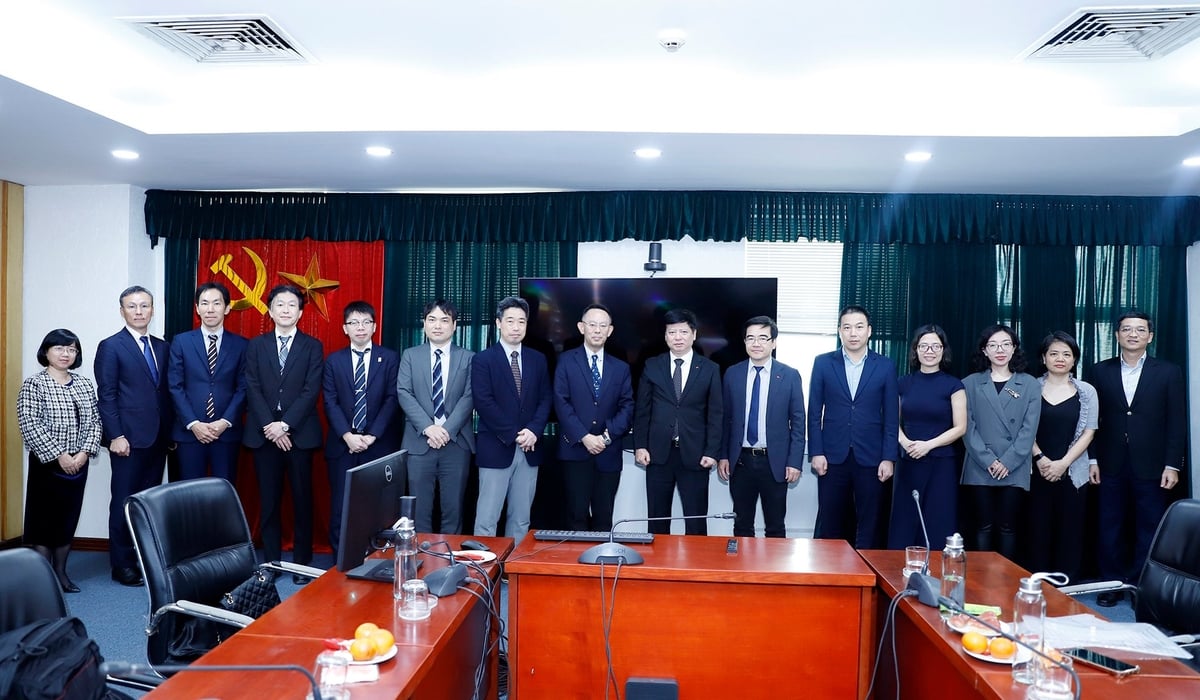
The two sides took a group photo at the end of the working session. Photo: Khuong Trung.
Business cooperation and high-level dialogue
Additionally, the 6th High-Level Dialogue is anticipated to take place in Tokyo, Japan, following September, as both parties have agreed. The International Cooperation Department of the Ministry of Agriculture and Environment (Vietnam) and the Department of Environment, Export, and International Relations of the Ministry of Agriculture, Forestry, and Fisheries (Japan) have proposed the establishment of a Public-Private Forum to enhance business collaboration, in addition to this high-level dialogue.
This initiative has been warmly received by Vietnam. The International Cooperation Department leaders of the Ministry of Agriculture and Environment have expressed their eagerness to receive information as soon as possible in order to convey it to the Minister of Agriculture and Environment and to invite Vietnamese businesses to participate.
Translated by Linh Linh
/2025/11/22/3633-1-072521_760.jpg)
(VAN) The signing ceremony took place under the witness of Prime Minister Pham Minh Chinh and President of the Republic of South Africa Cyril Ramaphosa.

(VAN) Severe flooding in Khanh Hoa Province has caused catastrophic damage estimated at around USD 30 million, with the agriculture and irrigation sectors alone accounting for roughly USD 15.7 million in losses.

(VAN) Official Telegram No. 226/CD-TTg, issued on November 21, 2025, mandates enhanced management and utilization of national reserves to support flood response and relief efforts in the Central Region.

(VAN) The Politburo has demanded a high concentration of efforts on urgent relief tasks, ensuring absolute prevention of hunger, cold, and shortages of clean water or medicine among the population.

(VAN) Water resources during the 2025–2026 dry season in the Mekong River Basin basically meet domestic use and production needs, but localized shortages may still occur due to saltwater intrusion.

(VAN) Vietnam and Japan have committed to deepening cooperation on projects under the Joint Crediting Mechanism (JCM), improving waste management, and advancing the circular economy.

(VAN) Digital transformation is becoming a core driver of proactive, precise, and safer management of dams and reservoirs nationwide.